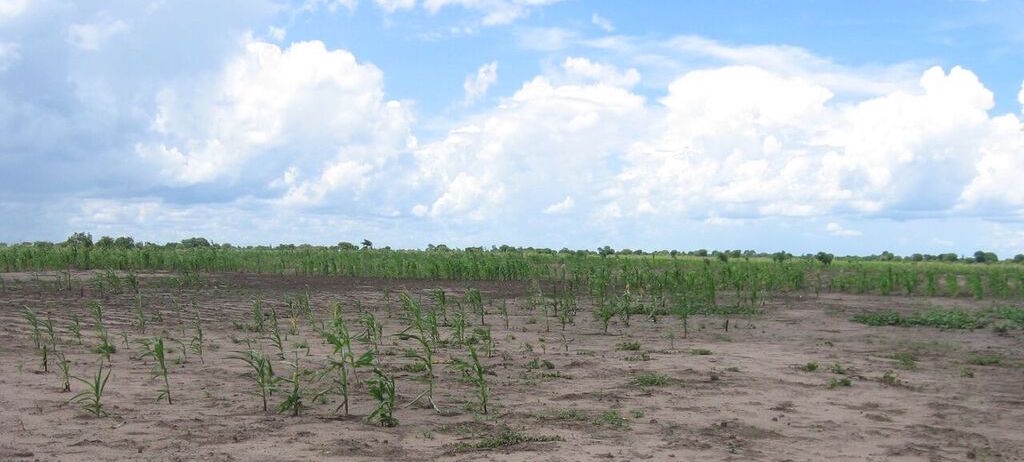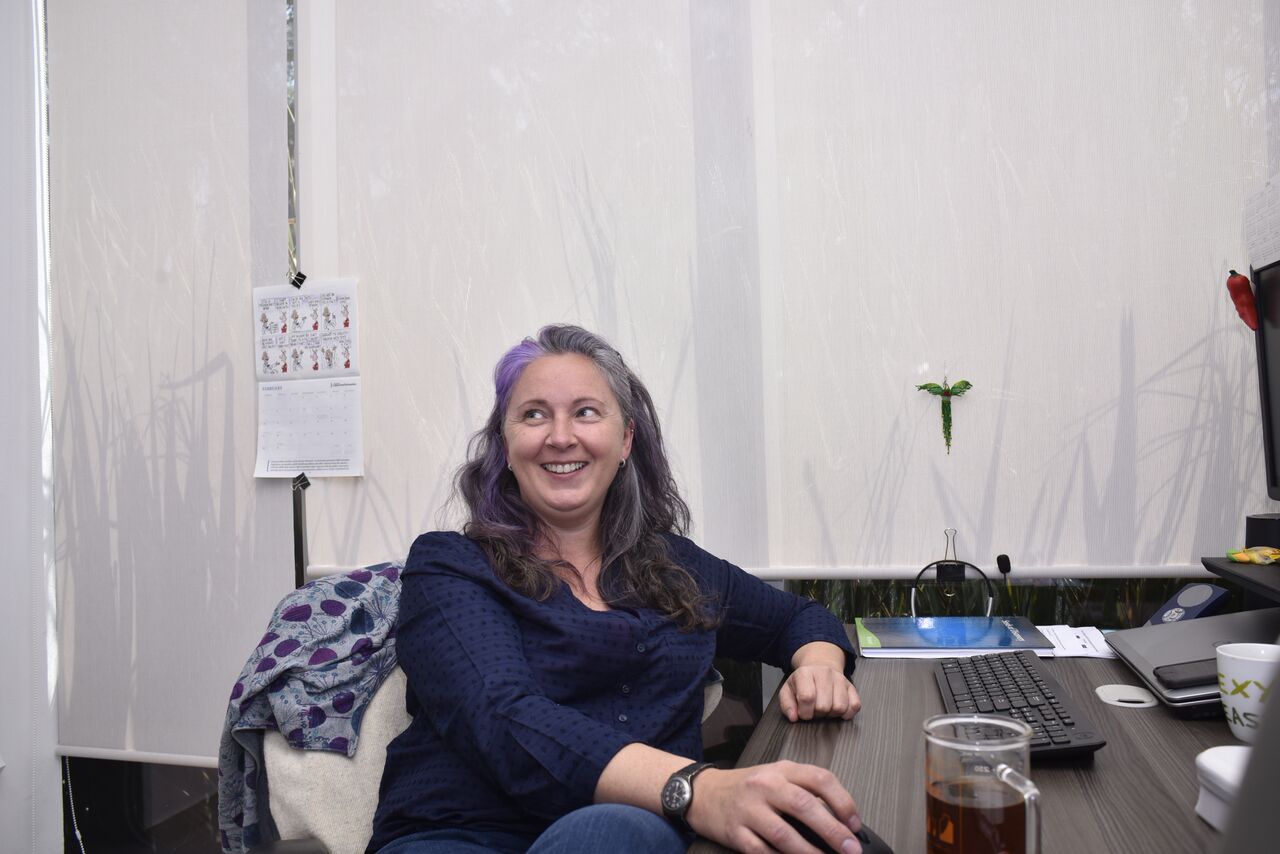Nutrition, health and food security
As staple foods, maize and wheat provide vital nutrients and health benefits, making up close to two-thirds of the world’s food energy intake, and contributing 55 to 70 percent of the total calories in the diets of people living in developing countries, according to the U.N. Food and Agriculture Organization. CIMMYT scientists tackle food insecurity through improved nutrient-rich, high-yielding varieties and sustainable agronomic practices, ensuring that those who most depend on agriculture have enough to make a living and feed their families. The U.N. projects that the global population will increase to more than 9 billion people by 2050, which means that the successes and failures of wheat and maize farmers will continue to have a crucial impact on food security. Findings by the Intergovernmental Panel on Climate Change, which show heat waves could occur more often and mean global surface temperatures could rise by up to 5 degrees Celsius throughout the century, indicate that increasing yield alone will be insufficient to meet future demand for food.
Achieving widespread food and nutritional security for the world’s poorest people is more complex than simply boosting production. Biofortification of maize and wheat helps increase the vitamins and minerals in these key crops. CIMMYT helps families grow and eat provitamin A enriched maize, zinc-enhanced maize and wheat varieties, and quality protein maize. CIMMYT also works on improving food health and safety, by reducing mycotoxin levels in the global food chain. Mycotoxins are produced by fungi that colonize in food crops, and cause health problems or even death in humans or animals. Worldwide, CIMMYT helps train food processors to reduce fungal contamination in maize, and promotes affordable technologies and training to detect mycotoxins and reduce exposure.
Millions of smallholders in Africa benefit from climate resilient drought-tolerant maize
 Climate adaptation and mitigation
Climate adaptation and mitigation
At least 40 million smallholder farmers in sub-Saharan Africa are profiting from more than 200 new drought-tolerant varieties of maize.
Global wheat community discusses research, partnerships at Obregon pilgrimage
 Nutrition, health and food security
Nutrition, health and food security
For hundreds of international agricultural development experts, an annual gathering in northern Mexico provides a vital platform for sharing and debating the latest wheat breeding news and research.
Will El Niño be a wake-up call to invest in food security solutions?
 Capacity development
Capacity development
In southern Africa close to 50 million people are projected to be affected by droughts caused by the current El Niño, write CIMMYT scientists.
Global wheat breeding provides billions in benefits, CIMMYT study shows
 Nutrition, health and food security
Nutrition, health and food security
Almost half the world’s wheat land is sown to varieties that come directly or indirectly from research by CGIAR scientists, according to a new report.
Combating malnutrition: a new zinc-rich variety of wheat
 Nutrition, health and food security
Nutrition, health and food security
New high-zinc varieties of wheat can help improve diets in some parts of India, scientists V.K. Mishra, Ramash Chand and Arun Joshi write in The Indian Express newspaper.
Cereal systems in South Asia show diverse benefits of conservation agriculture
 Capacity development
Capacity development
Conservation agriculture practices are climate-smart, helping farmers adapt to climate change while minimizing greenhouse gas emissions, researchers say.
U.S. embassy in Pakistan highlights hybrid maize seed production
 Nutrition, health and food security
Nutrition, health and food security
New maize varieties with resistance and tolerance to multiple stresses to benefit Pakistani farmers thanks to joint CIMMYT-USAID collaboration.
Educational video helps Kenya farmers learn benefits of drought-tolerant maize
 Capacity development
Capacity development
A new video aimed at raising awareness among farmers about high-yielding, drought-tolerant maize varieties is set for distribution in eastern Kenya.
Scientists aim to adapt wheat to a warmer climate with less water
 Climate adaptation and mitigation
Climate adaptation and mitigation
Scientists battling to increase wheat production by more than 60 percent over the next 35 years to meet projected demand are optimistic that they have begun to unravel some genetic mysteries.
Knight of the Order of Agricultural Merit bestowed on WHEAT independent steering committee member
 Nutrition, health and food security
Nutrition, health and food security
John R. Porter, member of the WHEAT Independent Steering Committee, was granted Knight of the French Order of Agriculture Merit at a ceremony on 1 March.
Scientists unearth genetic treasures from Mexico’s Creole wheats
 Nutrition, health and food security
Nutrition, health and food security
Findings can help to boost wheat’s climate resilience worldwide
The legacy of drought tolerant maize for Africa
 Climate adaptation and mitigation
Climate adaptation and mitigation
The Drought Tolerant Maize for Africa project has contributed towards improving the seed system in sub-Saharan Africa in the face of extreme drought.
Kenya gives conditional approval to grow genetically-transformed maize
 Nutrition, health and food security
Nutrition, health and food security
KALRO will conduct National Performance Trials in Kenya using genetically-transformed, insect resistant maize beginning on Feb. 9.
Q+A: Ignore preconceptions, stake claim on science, CIMMYT’s Natalia Palacios tells women, girls
 Gender equality, youth and social inclusion
Gender equality, youth and social inclusion
Discrimination in the science sector remains a significant challenge to achieving gender balance in education and professional research, said Natalia Palacios, a top maize researcher.
Q+A: How women and girls can succeed in science, according to CIMMYT’s Sarah Hearne
 Gender equality, youth and social inclusion
Gender equality, youth and social inclusion
Gender balance is science is imperative to obtain the best results said CIMMYT scientist Sarah Hearne on the International Day of Women and Girls in Science 2016.

